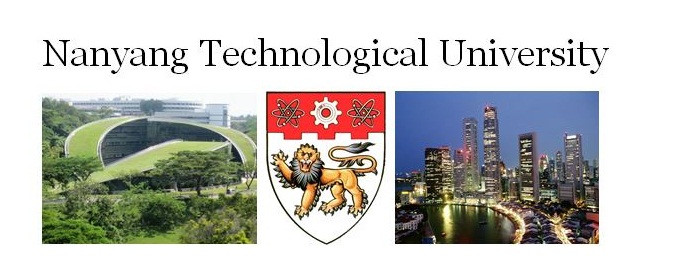Education
NTU Launches Two Big Initiatives to Support The Silver Generation

Nanyang Technological University Singapore (NTU Singapore) today launched the Ageing Research Institute for Society and Education (ARISE) and the Centre for Population Health Sciences (CePHaS) to provide solutions to health and lifestyle challenges faced by the elderly.
The launch was officiated by Minister for Health Gan Kim Yong at NTU today.
ARISE will study ways that the silver generation can stay healthy through disease prevention, treatment and management, in addition to encouraging an active lifestyle and promoting lifelong learning. NTU will develop technological innovations aimed at improving quality of life despite the challenges brought about by ageing.
As a multi-disciplinary institute, it will bring together the strengths of NTU’s schools and research centres, ranging from business and engineering, to medicine, humanities, sports sciences and even urban design.
It will also work with the Centre for Population Health Sciences which will tackle pressing healthcare problems and develop practical solutions to improve overall population health.
The new centre is led by NTU’s Lee Kong Chian School of Medicine and supported by various healthcare and government agencies such as the National Healthcare Group.
NTU President Professor Bertil Andersson said, “One of the biggest problems impacting the world today are the challenges faced by rapidly ageing populations. By adopting an integrated and multidisciplinary approach towards ageing research, NTU can tackle this problem effectively, and improve the quality of life for Singaporeans as people live longer today with better management of chronic diseases.
“NTU will develop quality research to enhance our understanding of how Singapore is evolving as a society, and find the most effective solutions to sustain vibrant and resilient families, and communities.”
ARISE to work with partners from healthcare industry
Kickstarting ARISE’s research programme in geriatrics, NTU also inked a partnership with Tan Tock Seng Hospital’s Institute of Geriatrics and Active Ageing.
Professor Lam Khin Yong, NTU’s Chief of Staff and Vice President for Research said, “This partnership is a major step forward in boosting research in ageing and geriatrics. It also underpins NTU’s strong focus in forging close ties with industry leaders and government agencies to develop innovative and sustainable solutions for a better society.”
Associate Professor Chin Jing Jih, Director, Institute of Geriatrics and Active Ageing (IGA)said, “The close collaboration between TTSH IGA and NTU ARISE will provide a catalytic platform for multi-disciplinary research and innovation, which will deliver the holistic and integrated solutions needed to meet the complex challenges we face today in ageing and geriatrics.”
Helmed by Professor Theng Yin Leng, ARISE is NTU’s answer to the challenge of creating a healthy and active ageing society through research, innovation and education.
Research
For example, NTU is working on a home-based care research project where smart sensors are used to monitor the wellness of the elderly, such as whether they are eating properly or suffering from anxiety.
Installed at various locations around the home, these sensors can track a person’s movements. The data obtained can be used to gain insights into the person’s health and emotional state.
Innovation
Another project is the development of ‘exergames’ which are video games doubling-up as a form of exercise. Using technology, these games track body movement and reactions, and are specially designed to test eye-hand coordination and memory skills.
By studying their behaviours, the early detection of age-related diseases like Alzheimer’s and dementia may lead to quick medical interventions. Some of these games developed by NTU are already being tested at Tan Tock Seng Hospital’s geriatric centre, several community centres, as well as a Parkinson’s Disease Centre in Canada.
Professor Theng said, “These exergames also provide a common language for youths to actively socialise with the elderly. This will help empower the elderly to lead a mentally and physically healthy life through active ageing.”
Education
This was demonstrated at the Singapore Intergenerational National Games (SING) finals held at the NTU launch today where 18 seniors were paired up with youth participants in teams.
One of the participants, Susan Ho Poh Geok, 67, said, “I am very happy to explore exergames, to train my reflexes to keep up with the young ones.”
Undergraduate Guo Jian Long, 23, Vice President of NTU’s Welfare Services Club, said: “By bringing young and old together to participate in activities and games, we not only improve intergenerational understanding, but also encourage them to learn more about each other, and embrace our similarities and differences.”
NTU explores new healthcare approaches
The new NTU centre will study fresh healthcare approaches such as developing smartphone apps to manage chronic diseases as well as to address healthcare issues.
Commonly known as digital health (or eHealth), some of these apps could also be part of a doctor’s prescription to help patients better manage their symptoms and recovery using the convenience provided by smartphones.
Another focus of the centre is end-of-life care and support – an area that is often neglected. Individuals, families and societies need to be well prepared so that they can better care for loved ones during and beyond their final years of life.
Associate Professor Josip Car, Director of the Centre for Population Health Sciences, said, “The new centre will explore new ways of providing care, challenging the conventions of who, how, where and when care is provided to drive innovations that ensure care is accessible and affordable, leading to improved population health.
“Singapore’s health system is one of the best-performing in the world, but with a rapidly ageing population, chronic diseases, and other societal changes, it requires significant modifications and adaptations to continue to serve the population well and maintain its leadership in the global arena.”

























































